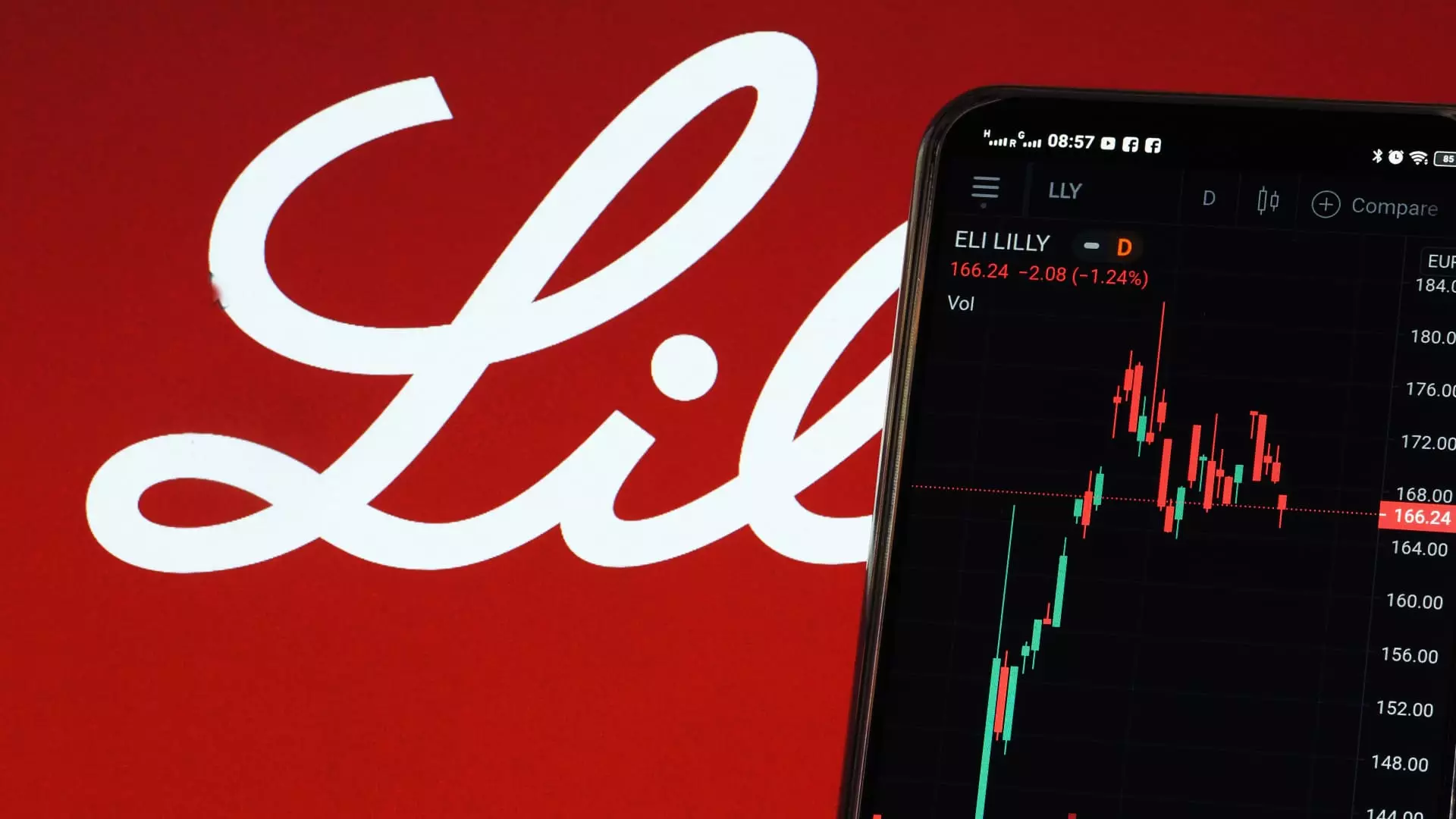The biopharmaceutical sector has recently witnessed a dynamic transformation, showing mixed results for various companies as they navigate complex markets and clinical landscapes. As we enter 2023, JPMorgan has highlighted a select group of biopharma stocks that exhibit promising potential for growth, particularly following the volatility experienced last year. Among these, Eli Lilly continues to stand out as a top pick, while Gilead Sciences and Bristol Myers Squibb also demonstrate robust positioning, as stated by analyst Chris Scott.
In a broader context, the United States Large Cap Biopharma segment has shown resilience, outperforming the S&P 500 year-to-date. However, Scott draws attention to a crucial detail: the current valuations remain near historic lows compared to the general market. This observation highlights a potential disconnect where favorable performance in stock prices does not necessarily align with underlying company valuations. The Nasdaq Biotechnology Index (NBI), for instance, has recorded a solid increase of 6.5% this year, signaling recovery from a disappointing 3% decline last year, during which much of the market surged.
This disparity underscores the hypothesis that investor sentiment is cautiously optimistic but wary of companies that present complex and messy near-term outlooks. Scott’s analysis reveals a market preference for biopharma firms with clearer growth trajectories, particularly those equipped with strong core assets or imminent product launches.
Eli Lilly’s Prominence and Expected Catalysts
Eli Lilly’s consistent spotlight in analyses is attributed to its impressive trajectory, especially in the evolving landscape of obesity and diabetes treatments. The company has marked a remarkable 13% gain in early 2023, adding to a 16% increase from the prior year, underlining its strong operational momentum. Analysts anticipate continued expansion propelled by the promising performances of Mounjaro and Zepbound, which are expected to drive prescriptions significantly higher as manufacturing capabilities and market access improve.
The pending clinical trial results for Eli Lilly’s experimental obesity medication, orforglipron, are also expected to serve as a substantial trigger for stock performance later in the year. If the preliminary data indicates positive outcomes, a mid-2026 launch could transform the company’s product portfolio, enhancing its competitive edge in the lucrative obesity market.
Despite these positive projections, Eli Lilly has faced challenges, as observed in its recent fourth-quarter performance that yielded mixed results. While demand for Zepbound and Mounjaro surged, the company’s revenue fell short of predictions, primarily due to unfavorable pricing adjustments. This exemplifies the dichotomy in performance within the company, as strong demand did not necessarily translate into the expected financial outcomes, emphasizing the volatility that can impact temporary stock performance.
Bristol Myers Squibb has been another focus of JPMorgan’s recommendations, with its ongoing product momentum generating significant interest among investors. However, the company encountered hurdles following fourth-quarter results that exceeded earnings expectations but fell short regarding 2025 guidance. This has resulted in a 2.4% year-to-date decline, albeit offset by a year-long increase of approximately 10%.
Scott maintains an optimistic outlook for Bristol Myers due to numerous growth drivers, especially in therapies for schizophrenia and potential expansions in its Alzheimer’s treatment portfolio. Additionally, aggressive cost-curbing measures are expected to enhance profitability and boost stock valuations moving forward.
In a similar vein, Gilead Sciences has been noted for its strategic focus on managing expenses and fostering growth within its product pipeline. The company’s commitment to enhancing its HIV portfolio appears promising, reflecting a well-thought-out approach amid competitive pressures.
While the biopharmaceutical sector grapples with its share of market fluctuations and clinical uncertainties, the insights provided by JPMorgan indicate a cautious yet promising pathway for investors. Eli Lilly seems poised for growth, with Bristol Myers Squibb and Gilead Sciences also representing compelling opportunities. However, the overarching narrative of caution prevails; as the market favors clear narratives and clean setups, investors should remain vigilant and discerning in their pursuit of opportunities within this intricate and evolving landscape. Such strategic insights could be the catalyst that determines investor success moving forward.


Leave a Reply